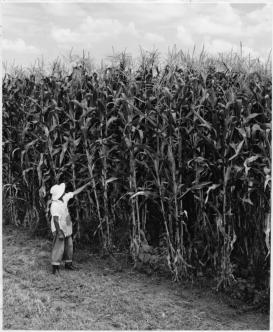After 1945, Western foundations and governments devoted considerable resources to promoting agricultural development in Latin America and Asia through the introduction of new technology, now generally referred to as "The Green Revolution" (GR). These programmes succeeded in boosting grain production several fold, though their social impact has been controversial. Over the last decade or two, development experts have been calling for similar programs to be extended to Africa.
As the terms used to designate such programs—the "new" or "second" GR—suggests, they are to be modeled to some extent upon the original GR. Since some of the original programs' consequences were undesirable, however, planners of the new GR have been at pains to "learn the lessons of history," and there is by now a substantial development literature which attempts to extract those lessons. Yet, as is well established, when policy makers draw upon evidence (whether historical or not) to inform policy, they generally do so in a highly selective way, so as to support their favored course of action. In this project I want, first, to explore the variety of "lessons" that development experts have extracted from history, noting mutual inconsistencies where they exist. Second, I will evaluate how well these interpretations accord with analysis of the GR written by professional historians.

